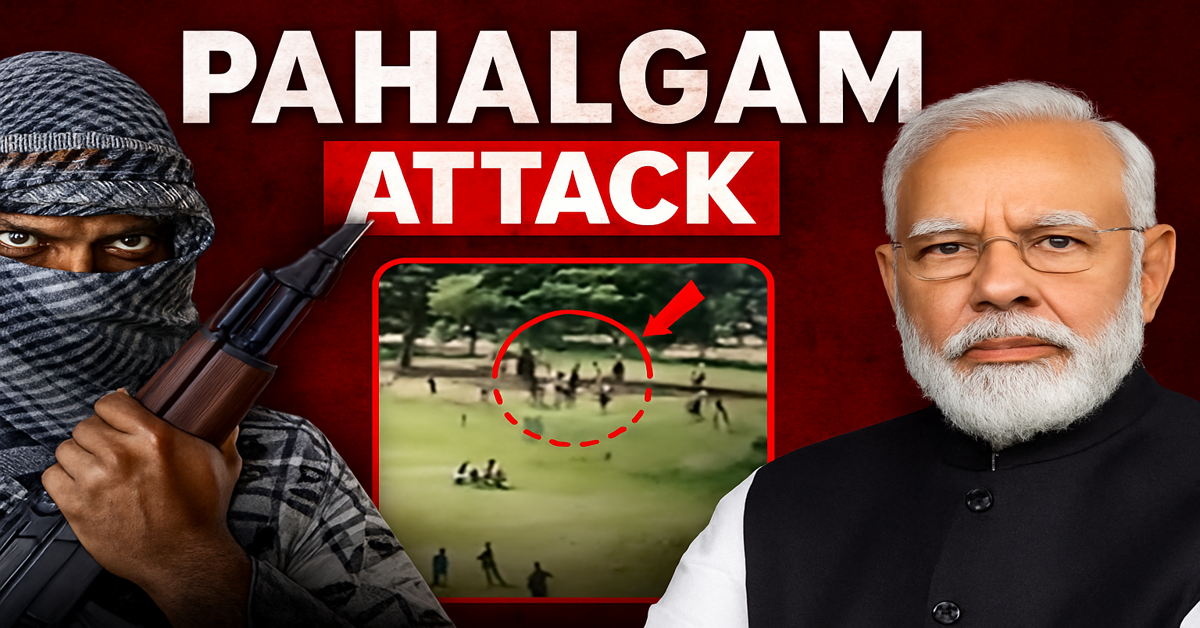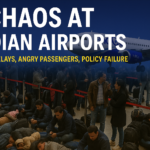Terror Attack in Pahalgam: A Wake-Up Call for India
Introduction
On what should have been an ordinary day of sightseeing in the breathtaking Baisaran Valley of Pahalgam — often called “Mini Switzerland of India” — terror struck mercilessly. A brutal attack by terrorists took the lives of 26 innocent people and injured 17 more, shaking the entire nation. As the dust settles, we are left grappling with important questions about security, governance, and accountability.
This tragedy isn’t just another headline. It is a call to action for every Indian who dreams of a safer, stronger, and more united India.
The Attack: Bloodshed Amidst Beauty
The Pahalgam attack was not a random act of violence. At an altitude where access is only possible via trek or mule rides, tourists were vulnerable. In this remote, stunning valley, terrorists targeted civilians ruthlessly.
With helicopters unable to land immediately, it was local heroes — Kashmiris themselves — who helped rescue the injured. Mule handlers carried the wounded to safety. Of the injured, 12 were admitted to Pahalgam hospital and are now recovering.
The attack once again exposed glaring gaps in security at tourist locations despite the heavy dependence of Kashmir’s economy on tourism.
The Victims: Lives That Mattered
The tragedy claimed the lives of:
- 24 Hindu tourists
- 1 Muslim mule handler (Syed Adil Hussain Shah)
- 1 Christian tourist
Among the victims were:
- Neeraj Udhwani, a UAE-based professional visiting his homeland.
- Sudeep Neupane, a tourist from Nepal.
- Tage Hailyang, an IAF Corporal on a short vacation.
- Manish Ranjan, an Intelligence Bureau officer from Bihar.
- Vinay Narwal, a young Indian Navy Lieutenant who was on his honeymoon.
Survivor accounts tell chilling stories of being asked to recite religious verses and facing bullets for not doing so. Innocence was met with unimaginable cruelty.
The Attackers: TRF’s Claim and Lashkar’s Hand
The terror outfit The Resistance Front (TRF) quickly claimed responsibility for the attack. TRF is known as a proxy of Lashkar-e-Taiba, a banned Pakistan-backed terrorist organization.
Three terrorists, reportedly including two locals, Adil Guri and Ahsan, along with Pakistani national Saifullah Kasuri, are believed to have carried out the attack. Sketches have been released based on eyewitness descriptions.
This horrifying event reminds us yet again that cross-border terrorism remains India’s biggest threat, despite multiple diplomatic efforts.
Intelligence Failure: Ignored Warnings
Disturbingly, reports have surfaced that intelligence agencies had issued prior alerts warning of possible attacks targeting tourists.
This echoes the failures before the Pulwama attack in 2019, where 11 intelligence inputs were reportedly ignored. In Pulwama’s case, 2,500 soldiers were packed into one convoy despite specific threats — leading to one of the deadliest attacks on Indian security forces.
It appears the critical lessons from Pulwama remain unlearned.
Where Is the Accountability?
Despite repeated terror attacks under successive governments, no real accountability has been seen:
- Nagrota Attack (2016)
- Amarnath Yatra Attack (2017)
- Sunjuwan Attack (2018)
- Pulwama Attack (2019)
- Poonch-Rajouri Attack (2023)
- Reasi Attack (2024)
- Pahalgam Attack (2025)
Leaders promise “free hand to the army” and “revenge,” but ordinary citizens continue to die.
Where are the resignations? Where are the structural changes in intelligence sharing and security deployment?
Security Lapses: No Protection for Tourists
Questions arise:
- Why were thousands of tourists allowed without armed protection?
- Why wasn’t tourist movement suspended given specific threats?
- Why did the army take nearly 20 minutes to arrive after firing began?
Local Kashmiris, not the official security forces, rescued the injured. While this highlights the humanity among Kashmiris, it also shows the glaring gaps in India’s ground-level security apparatus.
India’s Soldier Shortage: A Grim Reality
India today faces a dangerous shortage in its military forces:
- 8,400 Army officers short
- 92,400 soldiers short
Plans to cut 200,000 troops by 2030 to save pensions and salaries have alarmed defense experts. In a region as sensitive as Kashmir, fewer boots on the ground mean greater risks for civilians and security forces alike.
Cost-cutting in defense can have bloody consequences — and the Pahalgam attack underlines that danger.
The Story of Lieutenant Vinay Narwal: A Heartbreaking Tale
Lieutenant Vinay Narwal, just married, was alive for one and a half hours after being shot. His family painfully recounts that no army unit or rescue helicopter came to his aid in time.
In contrast, politicians and billionaires enjoy Z+ security, bulletproof convoys, and helicopters at taxpayer expense. The message is clear: the lives of ordinary Indians are considered expendable.
Media Complicity: Silence Over Accountability
After the attack, instead of asking tough questions, national media ran narratives glorifying political leaders:
- “PM Modi cuts short his trip.”
- “World shaken by India’s anger.”
No prime-time anchors asked why security warnings were ignored. Instead, some shamelessly blamed unrelated Supreme Court proceedings or opposition leaders.
Leaked WhatsApp chats even revealed how a top anchor celebrated Pulwama deaths because they would boost television ratings. Journalism, it seems, has been replaced by propaganda.
Before 2014 vs After: No Accountability Culture
After the 26/11 Mumbai attacks, Home Minister Shivraj Patil resigned. Maharashtra Chief Minister Vilasrao Deshmukh also resigned, accepting moral responsibility.
Today, even after multiple mass killings, no ministers step down. No reforms are visible. The system seems immune to shame or consequences.
The Silver Lining: Citizens Showing Unity
Amidst all the darkness, India’s citizens once again showed the terrorists that unity is stronger than hate:
- Kashmiris observed shutdowns to mourn the victims.
- Muslim organizations like Jamat-Ulama-e-Hind publicly condemned the attack.
- Indian Muslims across the country expressed solidarity with the victims.
- Muslim nations like UAE, Saudi Arabia, and Qatar condemned the terror attack in strong terms.
Terrorists want Hindus, Muslims, Christians, and others to fight among themselves. But India’s unity remains their greatest defeat.
The Road Ahead: Demanding Real Action
This is not the time for social media hashtags or temporary outrage. It is time for citizens to demand:
- Serious security reforms.
- Restructuring intelligence coordination.
- Filling army and police vacancies urgently.
- Real accountability for failures.
We must reject attempts to use terrorism for political gains or religious hatred. Terrorism must unite all Indians — across faiths — in defense of life, freedom, and peace.
Conclusion: Long Live Indian Unity
The Pahalgam tragedy is not just about 26 innocent lives lost. It is about a broken system that continues to fail its people. It is about a nation that must choose between propaganda and truth, between hate and unity, between complacency and action.
The only true tribute to the victims will be a safer, stronger, and truly united India.



